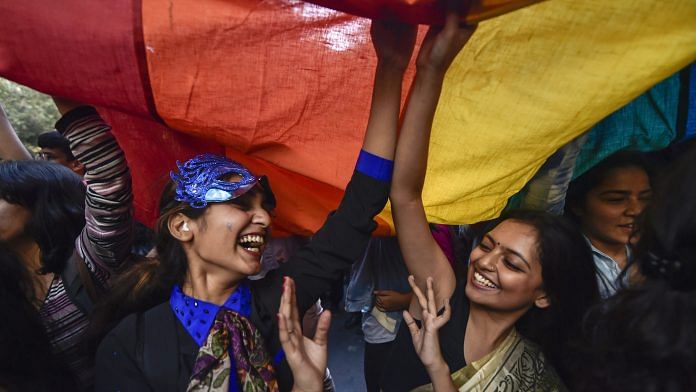Mumbai/Hong Kong: In the year since India’s Supreme Court issued a landmark ruling that decriminalized homosexuality, Deutsche Bank vice-president Ketty Avashia has noticed a small yet important shift toward greater equality in the workplace: Co-workers are more sensitive to issues affecting LGBT people like herself.
Colleagues at the bank want to learn about what it’s like to be LGBT in India, said Avashia, a 41-year-old transgender lesbian who works in the technology unit at the bank’s office in Pune.
“I see a certain amount of curiosity and inquisitiveness among colleagues wanting to know more about my life,” she said. “Lately I’ve begun seeing a fair degree of warmth in the questions coming to me.”
Asian countries lag far behind the West when it comes to equality for LGBTQ community — an acronym referring to lesbian, gay, bisexual, transgender and queer — and especially same-sex marriage rights. Some recent progress though has been made in closing this gap.
This year, Taiwan in May legalized same-sex marriage. In June, Hong Kong’s highest court granted spousal benefits to a married gay couple who had wed overseas in a country with marriage equality.
Still, based on the number of people affected, no country has made a more significant move toward greater LGBT equality than India, where the highest court in September last year struck down a colonial-era law criminalizing homosexuality in the world’s second most populous country.
Expanding Scope
Since then, multinationals and local companies have started or expanded corporate programs to address concerns of LGBT employees in the workplace, according to Aparna Mittal, founder of the Samana Centre for Gender, Policy and Law in Delhi.
“Because they don’t have the criminalization issue anymore, they are a lot more vocal, visible and open to discussing these things,” she said. “It’s really cascading into something bigger.”
For many companies, one step has been to reconsider their hiring, benefits and workplace policies to make them more inclusive.
One big event took place in July, when more than 40 employers sponsored a job fair in Bengaluru focused on LGBT people. Goldman Sachs Group Inc., Intel Corp. and Ford Motor Co. were among the companies that participated.
The India unit of Citigroup Inc. has extended medical insurance and relocation benefits to all domestic partners, including those of the same sex, according to its General Counsel Padmaja Chakravarty. “Recruitment planning is looking at ways to identify and include LGBTQ+ talent in the workforce,” she said.
Star India, owned by Walt Disney Co., in July began offering health insurance coverage to partners of its LGBT employees. The Mumbai-based media company also started providing them maternity, paternity, in-vitro fertilization, surrogacy and adoption benefits.
Economic Loss
“We are suddenly seeing a lot of interest,” said Ashok Pamidi, chief executive officer of Nasscom Foundation, the Indian IT industry-affiliated non-profit that works on LGBT inclusion and other social issues. Employers “understand there is an economic loss if you exclude a particular part of the society.”
Nasscom in April teamed up with HSBC on a day-long Amplifying Pride conference, featuring speakers from Google, Wells Fargo and other multinationals discussing issues related to LGBTQ+ employees.
The decriminalization decision led to a surge of interest among employees in the India offices of Barclays Plc, said Mohit Shukla, a managing director in Mumbai who oversees regulatory and government relations.
When Barclays began hosting workplace talks about LGBT issues three years ago, they attracted only 40 or so people, he said. Now, between 250 to 300 people usually take part in events that the bank sponsors quarterly.
Employers in India seeking to promote workplace equality still face significant challenges in addressing the needs of LGBT employees. Because India doesn’t recognize same-sex marriages or even civil partnerships, companies that want to offer equal access to benefits must devise their own criteria for long-term partners.
And many employees are wary of stepping forward to take advantage of those benefits, given the risks of coming out as LGBT in India.
Deutsche Bank is now working on how to help employees be secure enough to come out in the workplace, according to Madhavi Lall, the bank’s Mumbai-based head of human resources who has helped organize workshops for managers to become more sensitive to LGBT issues.
“I would say people are more comfortable today than they would have been a year and a half back because decriminalization has made it more possible for them to come out,” Lall said. “But like with any change this too is going to take time.” – Bloomberg
Also read: Year after homosexuality was decriminalised, equality a distant dream for LGBTQ community



